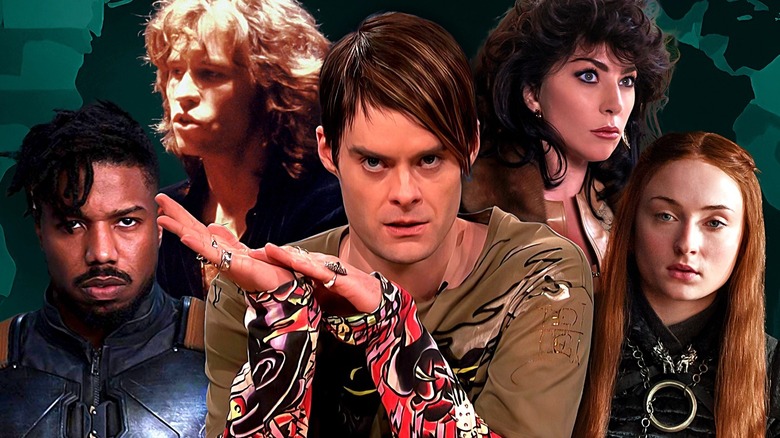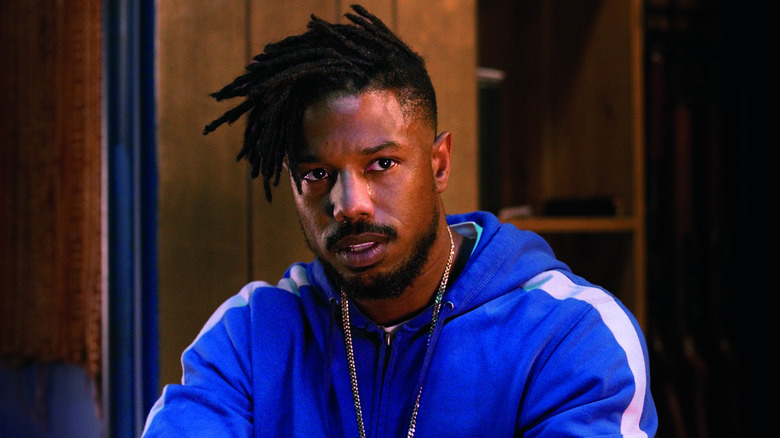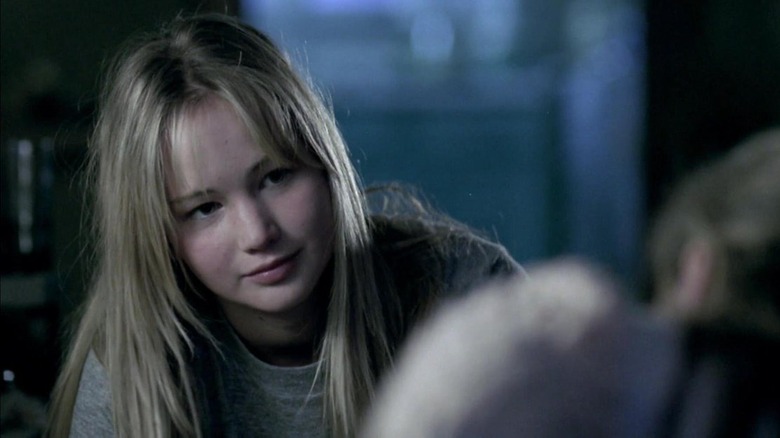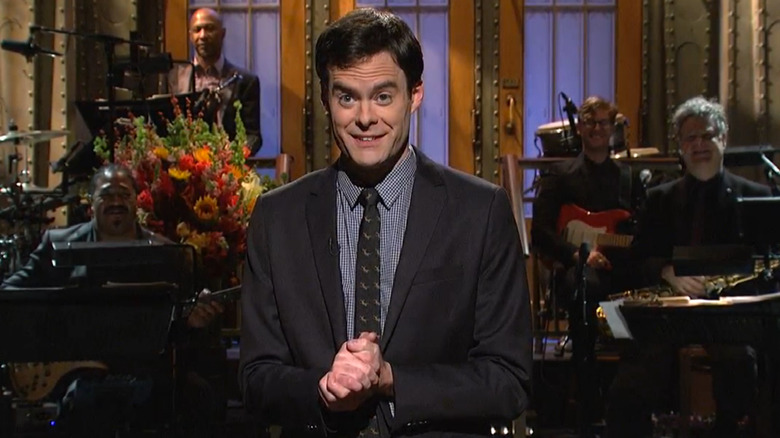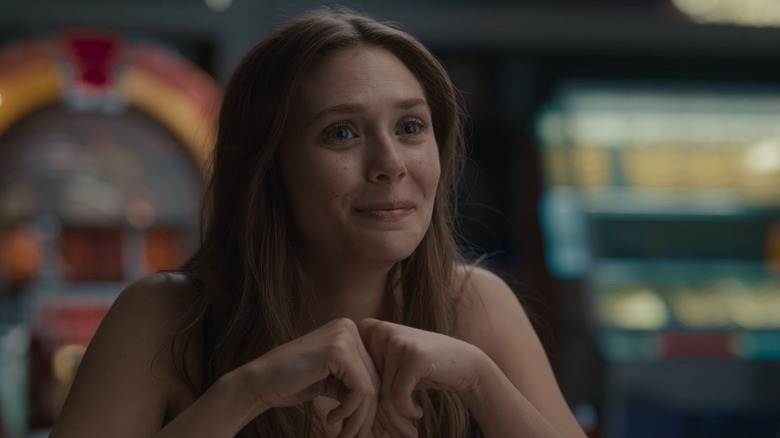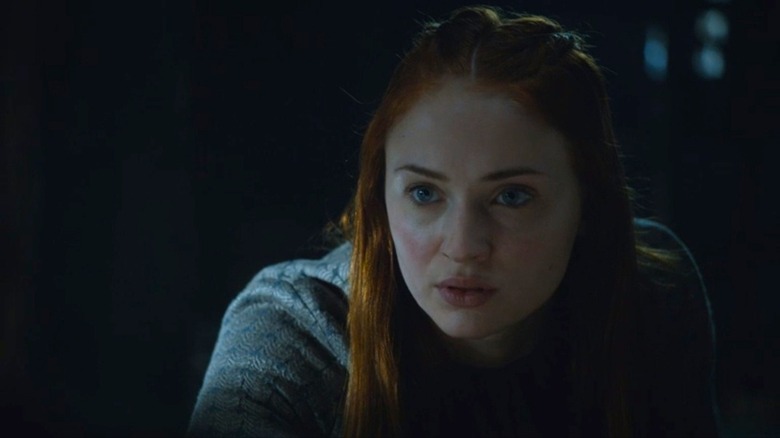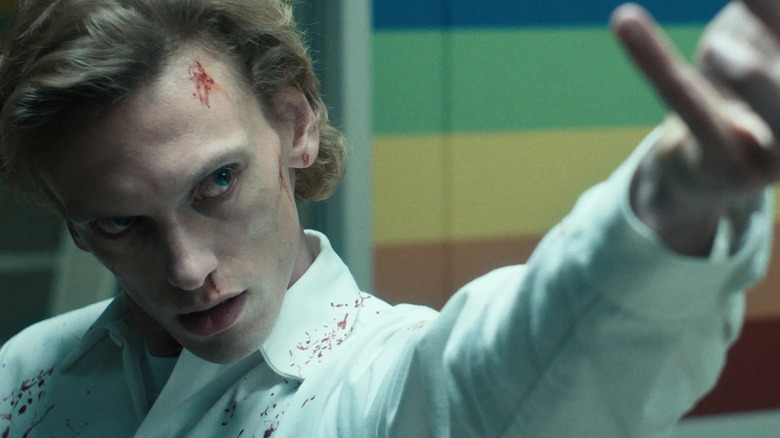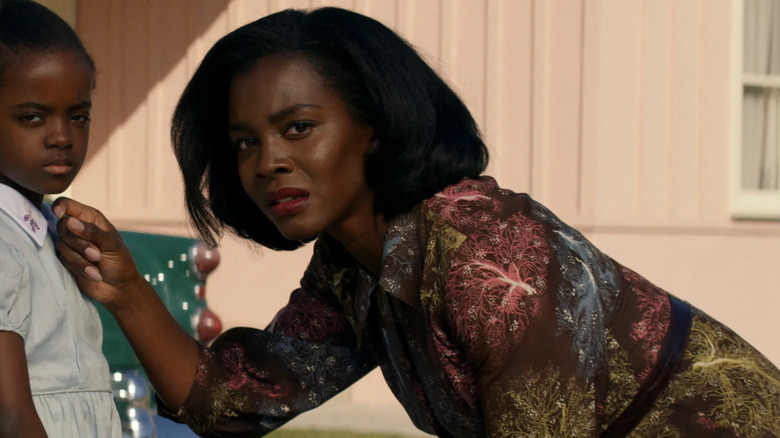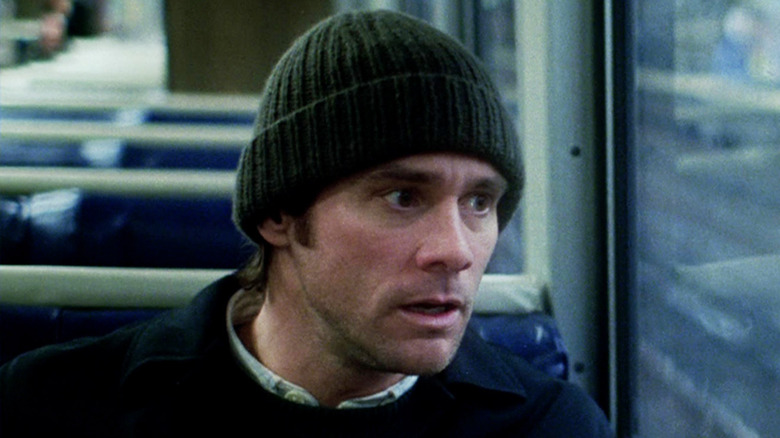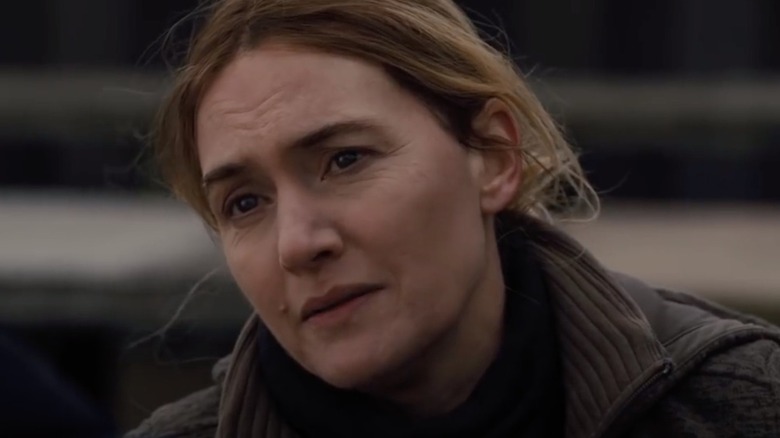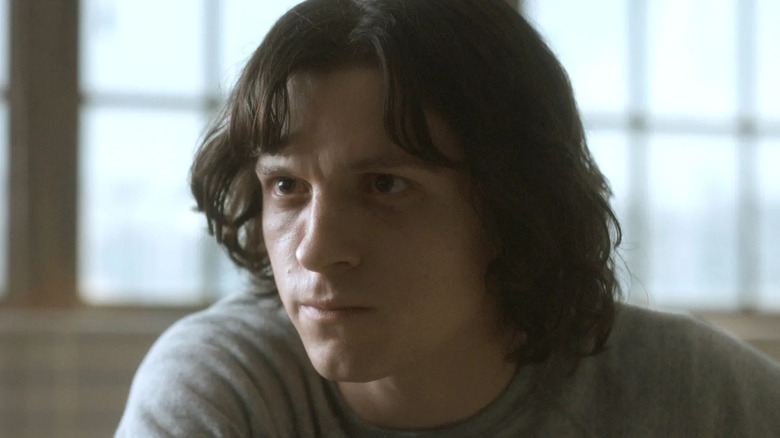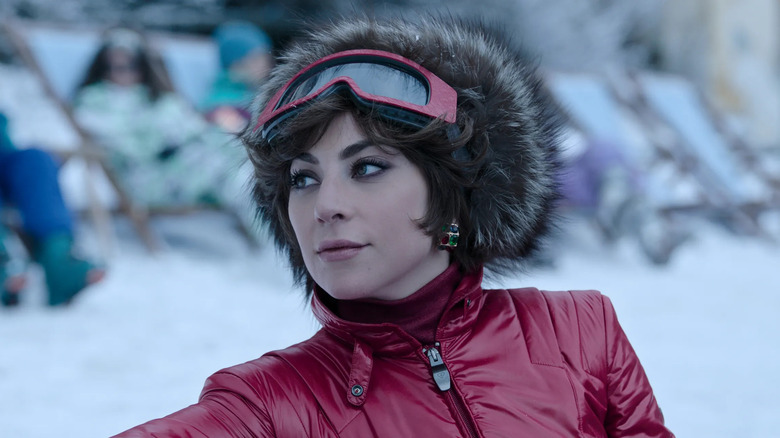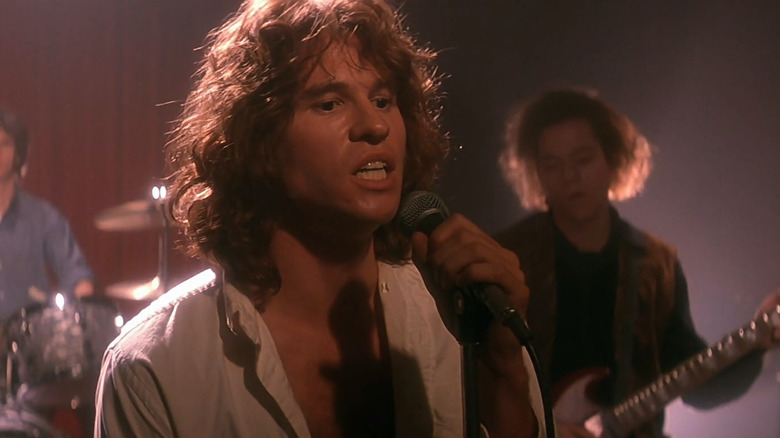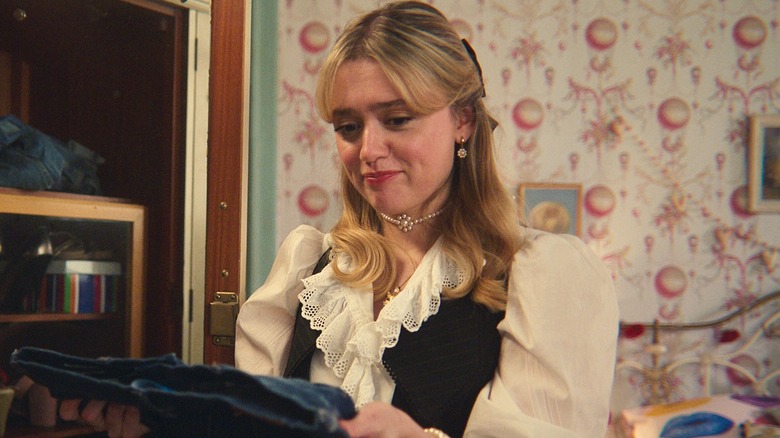15 Actors Who Needed Therapy After Intense Movies & TV Shows
No one's saying it's hard to be an actor compared to any other job, but sometimes the work requires you to confront parts of yourself you aren't quite capable of facing. Nowadays, people are more open about mental health in movies than they used to be, with some of the biggest stars in Hollywood being forthcoming about their experiences with therapy or seeking treatment for disorders like anxiety, OCD, and depression. However, in many cases, the actors have their own work to blame for the way they feel.
Oftentimes, intense roles can not only be anxiety-inducing albeit worth the stress to watch, but they can have lasting effects on the actors involved in bringing them to life. In the case of these 12 stars from film and television, the struggles their characters were going through more than bled a little into their real lives, but thankfully, they were also fortunate enough to seek out mental health treatment during or after.
If you or someone you know needs help with mental health, please contact the Crisis Text Line by texting HOME to 741741, call the National Alliance on Mental Illness helpline at 1-800-950-NAMI (6264), or visit the National Institute of Mental Health website.
Michael B. Jordan
Lots of people in the entertainment industry underestimate the level of care actors put into superhero movies. It's especially true for a film like "Black Panther," in which Michael B. Jordan is a scene-stealing villain as Erik Killmonger, the orphaned nephew of T'Challa's (Chadwick Boseman) father, who seeks revenge against the Wakandan royals for their neutrality in worldwide oppression. He may not be one of the most powerful MCU villains, but playing Black Panther's enemy drove Jordan into therapy after having spent a lot of time alone while finding the character.
As Jordan alleged, after getting into character as someone angry and broken like Killmonger, it took a while for him to open himself back up to love from the people in his actual life. It certainly made for a great performance, as when Killmonger takes off his shirt and reveals the scars he has for every person he killed, you really get a sense for the gravity of what this character has gone through. Fortunately, the dark places Jordan went to for the role didn't scare him off from a cameo appearance in "Black Panther: Wakanda Forever."
Jennifer Lawrence
Although it was a combination of her Oscar-nominated turn in "Winter's Bone" as well as mainstream appearances in both the "Hunger Games" movies and the "X-Men" franchise that turned Jennifer Lawrence into a movie star, the actress had proven her worth as a dedicated actor years earlier. "The Poker House" was one of the first films Lawrence ever starred in, as she played the 14-year-old daughter of a sex worker who steps in to care for her two younger sisters. However, the actress had a lot to learn about work-life balance before playing this incredibly emotional role.
As Lawrence described, she sought help after wrapping "The Poker House" because, at the time, she didn't have the tools to separate herself from her characters when she left the set. Though she's certainly done roles that are just as heavy since "The Poker House," her inexperience with acting out subject matter that intense encouraged a friend to set her up with a therapist for a while. The actress has also been open about seeking therapy as a teenager to help her deal with social anxiety, though she found acting a great cure.
Christina Applegate
Christina Applegate had quite the journey throughout the filming of Netflix's "Dead to Me," a black comedy about two strangers who become close after meeting at a supporting group for grieving women, only for Applegate's character, Jen, to uncover some big secrets of Linda Cardellini's Judy, including her involvement in the sudden death of Jen's husband. Surprisingly, doing just the first season of "Dead to Me" was enough for Applegate to uncover some unresolved trauma she needed to sort out in therapy.
Talking to Variety, Applegate described filming the show as "cathartic," saying, "To like finally talk about the stuff that hurt you in your life — and heal from that? I think it's [a] really beautiful thing." The show would actually end up being a life raft for Applegate over the next few years, as her diagnosis with multiple sclerosis while filming the final season had a huge impact on where the writers took Jen's story. Fortunately, her bravery both on and off-screen made for one of the best comedy shows on Netflix.
Bill Hader
It's certainly not a secret by now that, while Bill Hader was on the cast of "Saturday Night Live" from 2005 to 2013, the comedian suffered from a severe case of anxiety. In fact, Hader used to hide his panic attacks from "SNL" co-stars, resulting in iconic moments such as his Weekend Update character Stefon's tendency to hide his face. He's been open that the live aspect of "SNL" would constantly make him nervous, and it was only after encouragement from Lorne Michaels as well as advice from guests like Paul McCartney and Jeff Bridges that he started to cope with the job.
However, even after attending therapy and practicing meditation for years after leaving "Saturday Night Live," it wasn't until his HBO series "Barry" that Hader found his perfect balance of creating and acting. Thankfully, he's far from alone when it comes to experiencing anxiety on "Saturday Night Live," as evidenced by one of the best moments from the "SNL 50" anniversary special, when his former castmate Andy Samberg and current cast member Bowen Yang sang a song about how anxiety-inducing working at the show is.
Elizabeth Olsen
If you watched Elizabeth Olsen's performance as Wanda Maximoff in Disney+'s "WandaVision," you might think that character was one that stirred up a lot of emotions for the actress. As it turns out, it was an entirely different, albeit similar, role that convinced Olsen to seek mental health treatment. The 2018 series "Sorry for Your Loss" proved that even Facebook Watch could make peak TV, with Olsen starring as Leigh, a young woman forced to reconfigure her life after the sudden death of her husband (Mamoudou Athie).
Not only was it a big project for Olsen as her executive producing debut, but embodying Leigh's immense grief was triggering for Olsen, who had to start therapy and become more routine with yoga in order to not get lost in her erratic state of mind while filming. As it turns out, that was probably beneficial for Olsen while she and "WandaVision" creator Jac Schaeffer were collaborating on the Disney+ show, giving Olsen another albeit very different outlet for her unresolved issues with grief.
Kit Harington
It can be hard for any actor to feel like their entire career has been defined by one character. For Kit Harington, that character was Jon Snow, the underdog of HBO's "Game of Thrones," albeit the least offensive choice to win the Iron Throne. Harington went through quite the ringer during his time on "Thrones," spending lots of time early on in the harsh cold of Iceland and proving his endurance in several lengthy battle sequences near the show's end. However, letting go of "Game of Thrones" turned out to be the hardest battle Harington had to fight.
Following the HBO series' end in 2019, Harington checked into a rehab facility for mental wellness and alcoholism, with a then-undiagnosed case of ADHD prompting Harington to spiral from criticism toward the show's divisive final season, of which the Jon Snow actor staunchly defended. Harington's true feelings about "Game of Thrones" season 8 aside, his career has seemed positive ever since, including a brief stint in the MCU in "Eternals," a main role in HBO's "Industry," and several acclaimed performances in theater.
Sophie Turner
Kit Harington wasn't the only actor on "Game of Thrones" to seek help in its aftermath. Sophie Turner is surprisingly one of the biggest stars to emerge from the HBO series, having played the once-in-a-century ruler, Sansa Stark, for all eight seasons, starting at 14 years old. Even though Sansa has one of the best main character endings in "Game of Thrones," Turner revealed that being on the show from such a young age and exploring the kinds of storyline Sansa goes through had a real lasting effect on her mental health, admitting it'll probably manifest as trauma as she gets older.
Remarkably, Turner has been incredibly open not only about her struggles during "Game of Thrones" but the journey she's taken since, combating an eating disorder and anxiety with live-in therapy and the support of her friends and family. Even other projects like "Dark Phoenix" put a real strain on her mental health, but all in all, it's led Turner to become an advocate for mental wellness and seeking help for whatever people are going through. It's good to know that the real-life Sansa is just as strong as her Westerosi counterpart.
Jamie Campbell Bower
Season 4 of "Stranger Things" introduced the Netflix series to its most terrifying villain yet: Vecna, the supernatural being responsible for the Upside-Down's invasion of Hawkins, after his human form, Henry Cree,l was sent to the alternate dimension by Eleven. For the role, the show tapped Jamie Campbell Bower, who had previously made a name for himself with Tim Burton's "Sweeney Todd," the "Twilight" franchise, and the "Harry Potter" franchise, but the Vecna actor used murderous methods to get into character for "Stranger Things."
Given how immediately iconic Vecna has become, Bower's been legitimately concerned about the state of his mental health, having been typecast numerous times as a villain. He admitted that he brought the issue to his therapist, deciding that after filming the final season of "Stranger Things," he was done with playing bad guys for the time being. It's not entirely surprising given how committed the actor seems to have been to playing someone as viciously evil as Vecna, though hopefully by the time season 5 of the show premieres, it'll be worth it.
Deborah Ayorinde
Deborah Ayorinde had a strong career in television before "Them," appearing in shows like "Luke Cage," "True Detective," and "The Affair," but the Amazon Prime anthology TV series was a star-making turn for the actress. The first season centers on an all-black family who are new to an idyllic, mostly-white neighborhood in the 1950s, only to discover over the course of their first two weeks there that there's more than meets the eye about the townsfolk. Given the series' heavy exploration of racism as well as its use of violence and horror, it's no surprise Ayorinde needed some help to deal with the role.
Not only did the series' content inspire Ayorinde to start therapy outside of work, but Amazon also provided an on-set therapist for actors to talk to during or after shooting. As she told IndieWire, "[My character] Lucky required a lot of experiences in me that I'd hidden, that I was so comfortable leaving swept under the rug." The second season, which many critics considered an overall improvement to season 1, finds Ayorinde in the leading role yet again, so it seems like the mental health services provided on set helped.
Jim Carrey
For some actors, landing a role like Jim Carrey's as Joel in "Eternal Sunshine of the Spotless Mind" is a dream come true, but for the comedy actor himself, it was a nightmare. Considered by many to be one of the best Jim Carrey movies, the film follows the heartbroken Joel, who discovers that his recent ex-girlfriend Clementine (Kate Winslet), has undergone an experimental surgery to erase her memories of him, and in opting to do so himself, Joel finds himself reliving his entire relationship inside his own mind.
However, as Carrey revealed in the documentary "Jim & Andy: The Great Beyond," which primarily focuses on his method approach to playing Andy Kaufman in "Man on the Moon," the actor himself was going through a bad break-up when production on "Eternal Sunshine" began. When asking director Michel Gondry if he could seek mental health treatment, Gondry refused, believing his real-life heartbreak would help his performance. It was a very formative experience for Carrey, who has since spoken out about his experiences with depression, spirituality, and overall disillusionment with Hollywood.
Kate Winslet
Coincidentally, Jim Carrey's scene partner in "Eternal Sunshine of the Spotless Mind" has had her own experiences lately with needing to detach from roles. Kate Winslet has done many iconic films, with lots of them taking a real toll on her mental well-being, from "Revolutionary Road" to her Oscar-winning performance in "The Reader." Although she's admitted to not getting much out of therapy in the past, it was the HBO series "Mare of Easttown" that prompted Winslet to not only go back to therapy but also take an entire year off from acting.
Even though no one needs reminding about her being one of the greatest actors of all time, critics thought Winslet was phenomenal in HBO's small-town mystery series, even if she might balk at doing another season due to how much it took out of her to play Mare. However, Winslet's therapeutic approach to acting later informed her role in HBO's "The Regime," which had her taking an in-depth look at trauma by speaking with a psychotherapist and neuroscientist in order to play a European dictator.
Tom Holland
You know what they say: with great power comes great responsibility. While that's a sentiment often reserved for the character of Spider-Man, it's also true for the young man playing him, Tom Holland, whose career has skyrocketed since donning the iconic red-and-blue suit in the MCU. However, after stepping away from the role to do Apple TV+'s psychological thriller "The Crowded Room," Holland faced a reckoning with his own mental health, having to play a terrorist with Dissociative Identity Disorder from the terrifying true story behind the series.
As Holland later admitted, filming "The Crowded Room" was incredibly personal for the "Spider-Man: Homecoming" actor, having to step away from acting for an entire year just to detach from the role. As of the promotional period for the series, Holland was in the process of finding the right therapist to help him deal with several unresolved issues, including his quick rise in fame, struggles with alcoholism, and the overwhelming nature of social media. By this point, doing the impossible as Spider-Man seems like quite a vacation for Holland as an actor.
Lady Gaga
No one has ever accused Lady Gaga of putting in low effort, and that's for good reason. The singer, born Stefani Germanotta, has always been one of the most transfixing figures in pop culture, but it was her venture into acting starting in the late 2010s that showed people just how much of a force of nature she was. Never was this more obvious than with Ridley Scott's "House of Gucci," in which Gaga plays Patrizia Reggiani, wife of fashion heir Maurizio Gucci (Adam Driver). Despite mixed reviews for Scott's wicked satire of the rich and clueless, Gaga fell far too deep into the role of a hardened socialite-turned-criminal.
By the end of filming "House of Gucci," Gaga needed to keep a psychiatric nurse with her on set, telling Variety, "I don't think that any actor should push themselves to that limit ... I don't know why I'm like that." Thankfully, none of Gaga's co-stars felt offended by her method acting, even when Camille Cottin had to be kept separate from her on set as part of her process.
Val Kilmer
Actors are historically a little eccentric, but just read Will Forte's tribute to the late, great Val Kilmer to get a sense of just how weird they could get. One of Kilmer's most memorable roles was in Oliver Stone's 1991 biopic "The Doors," in which he plays the titular rock band's troubled frontman, Jim Morrison. Ultimately, Kilmer didn't have much time to be himself while working on the film, working so hard to embody the larger-than-life musician that he started to call actors by their characters' names.
Unsurprisingly, getting so deeply entrenched in a character like Jim Morrison without intending to was a good enough reason for Kilmer to seek therapy after filming had ended. In the eyes of people like Stone, Kilmer's performance in "The Doors" was snubbed from the start, believing it to be ahead of its time and groundbreaking in terms of actors portraying musical icons. Unfortunately, the performance also gave the actor a reputation for being difficult to work with, after he went violently off-script during his audition with co-star Caitlin O'Heaney.
Aimee Lou Wood
Anyone who's watched "The White Lotus" season 3 has undoubtedly fallen in love with Aimee Lou Wood, though a lot of us have been on the hype train for her since her screen debut in Netflix's sexy teen romp with a heart of gold, "Sex Education." The show centers on an ensemble of British teens grappling with sexuality and intimacy, ultimately seeking sex therapy from the socially awkward Otis (Asa Butterfield) and Maeve (Emma Mackey). Given the show's focus on mental health in young people, Wood was encouraged after the first season to try therapy out for herself.
As it turns out, Wood had lots to work out in therapy, leading her to become more open with her feelings, which likely informed how the "White Lotus" star feels about her "Saturday Night Live" parody, which got some negative media attention after she called out the show for ridiculing her appearance. Continuing on with later seasons of "Sex Education," Wood had a very sensitive approach to her character's storyline dealing with sexual assault, which became one of the most acclaimed aspects of the show's entire run.
If you or anyone you know has been a victim of sexual assault, help is available. Visit the Rape, Abuse & Incest National Network website or contact RAINN's National Helpline at 1-800-656-HOPE (4673).
